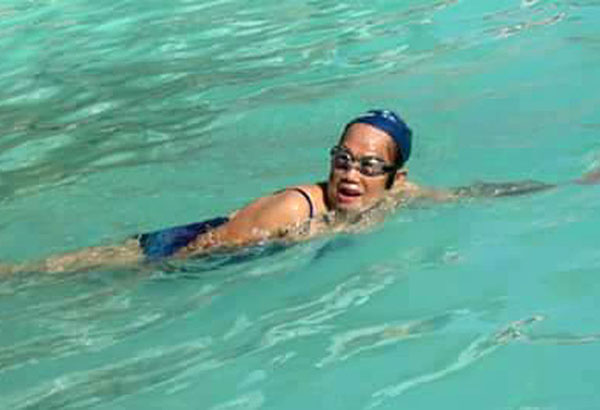Asia’s swim queen recalls glory days

JUST KEEP SWIMMING: Haydee Coloso-Espino still swims at 79.
MANILA, Philippines - No Filipino swimmer – male or female – has come close to matching the achievements of Haydee Coloso-Espino in the Asian Games. Dubbed as Asia’s swim queen in the 1950s, the now 79-year-old Ilongga won a total of 10 medals, including three golds, in the quadrennial multi-sport meet.
Espino first made international headlines at the 1954 Asian Games in Manila where she won two gold medals as a 16-year-old. “My most memorable race was the 100-meter freestyle in the Manila Asiad at the Rizal Memorial pool. I swam against Japanese swimmers Tomiko Atarashi and Shizue Miyabe, I was in between them.
In the last 10 meters both of them were ahead of me. Then I gave all my strength in the last five meters and beat both of them,” recalls Espino, who also topped the 100m butterfly in an Asian Games record time and won a silver medal in the 4x100m relay along with Sonia von Giese, Gertrudes Vito and Nimfa Lim.
“There was an uproar in the audience and the jampacked grandstand nearly collapsed. My mother Alicia, who was watching on the sidelines, fainted when I won. That I will never forget.”
Marriage prevented Espino from competing in the 1956 Melbourne Olympics but she continued her swimming career after giving birth and won more medals at the 1958 Asian Games in Tokyo and the 1962 Asiad in Jakarta, where she got to meet and dance with then Indonesian president Sukarno.
She also took part in the 1960 Rome Olympics where she got to interact with Australian swimming greats Dawn Fraser and Ilsa Konrads and saw legendary athletes like boxer Cassius Clay (later Muhammad Ali) and runners Abebe Bikila and Wilma Rudolph. Espino retired from competitive swimming after the Jakarta Asiad and later taught Physical Education at her alma mater Far Eastern University, Lyceum of the Philippines and Araullo High School. After retiring from teaching, she migrated to Canada where some of her children are based.
While her children became competitive swimmers as well, none of them made it a career. But Espino remains optimistic that her 12-year-old granddaughter in New York, Justine Daisy, will eventually follow in her footsteps.
Last year, Espino along with several others formed the second batch of athletes to be inducted into the Philippine Sports Hall of Fame. “It is one of the greatest honors that an athlete can achieve.
I’m thankful that I’m still alive to receive such an honor,” said the recently widowed Espino, who will turn 80 in August.
Espino, who still swims once in a while, is also hoping that the proposed sale of the Rizal Memorial Sports Complex to a private developer will not push through.
“To me it is my heart and soul. The place where I won many gold medals, the place where almost all athletes practiced and developed their skills,” the three-time National Swimmer of the Year said. “For athletes like me, it’s a monument. It’s sad that this historic structure could one day just be demolished.”
- Latest
- Trending














